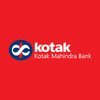
HSBC Group
Proud winner of ABECA 2024 - AmbitionBox Employee Choice Awards
Filter interviews by
HSBC Group Interview Questions, Process, and Tips for Freshers
HSBC Group Interview Experiences for Freshers
65 interviews found
Interview Preparation Tips
Experience: A written test comprising of 4 sections - Quant, LA, About the Company and Accounting basics. Each section is given equal weightage and the duration of the test is 2/3 hours. Listen to the Company PPT as Section 3 (About the Company) questions are based on that. Section 4 can be cracked using the EECA course (IEM subject) content. There will be a seating arrangement for the test, so be well prepared. Maintain a CGPA > 7.5.
Tips: Basic information about Accounting (try going through the outline of Engineering Economy Costing and Accounting course of IEM); it comes very handy in the written test and Interview (basic information like Profitability, assets ratio, etc. will be sufficient). Some knowledge in Statistics (mostly Regression and some information in Data Mining may come handy). Try relating every work that you have done to statistics, if not numbers and show them how much you love numbers.
Round: Group Discussion
Experience: Group Discussion round where each group of 8-9 students is given 10-15 mins to discuss and everyone is asked to conclude. General topics which feature in the current news will be given; our topics were IAC (Aaam Aadmi Party), FDI in Retail, Anna Hazare, etc.
Tips: Talk to your group and plan before entering the room so that it will be a healthy discussion. State your points cogently but don’t try to dominate and don’t allow others to dominate over you; conclude well.
Round: Technical Interview
Experience: A technical interview with general questions like “Walk me through your CV”, etc., followed by questions on statistics and a bit of finance (provided you mention that you have some knowledge of that field).
Tips: You might be asked guesstimate questions; I was asked to locate an AC shop in Kolkata and mention the factors that I would take into consideration. Don’t panic if you don’t know something; be confident of whatever you say.
Round: HR Interview
Experience: The HR interview will be taken by a senior manager. The prime task of the interviewer is to intimidate you, so he will fire questions at you, some of which might be beyond your domain/knowledge.
Tips: Just remain calm and answer what you can; even correct answers will invoke bizarre looks from the interviewer. Remember that he is not testing your knowledge; he only wants to test how well you handle pressure. Reaching this round implies that you are nearly in. In our case, only 3 students were shortlisted for the HR Interview and all 3 got selected. However, that doesn’t mean that you can be overconfident. Just be casual and give it your best shot.
General Tips: Try relating your projects to statistics. If possible, choose projects related to stats or which demand the use of at least a statistical tool.
Prepare for CAT as it will come in handy not only for this test, but for all the placement tests. Go through statistics, mainly regression, and have a basic knowledge of accounting. Try taking some IEM subjects like EECA/Financial Engineering (prove to be quite useful for all the finance and analytic companies, which is about 20% of all the companies which come on campus).
Skill Tips: It’s an Analyst profile, so math ability is expected. MATLAB or MINITAB may give you an edge over others.
College Name: IIT KHARAGPUR
Interview Preparation Tips
Experience: The written test was quite similar to the typical CAT pattern. It contained sections on Reading Comprehension, Data Interpretation and Mathematics.
Round: Interview
Experience: There were 3 interview rounds:
There were 2 interviewers in the first interview, one was a technical guy and the other was from HR. They asked me a few
very simple puzzles, a few basic programming questions (swapping the value of two variables etc.), questions related to the development cycle of software products. The HR guy asked stuff like what do you want to achieve in life? Strengths, weaknesses etc.
The second interview was resume based. He asked me about my thesis, internship, various projects, positions of responsibility etc.
The third interview was the most important one (and I guess that was the deciding interview). The interviewer started with questions like why finance? Which companies are you sitting for? Then he gave me a case study: “As a banking organization, you have given house loans to a lot of customers. Given the current scenario, you have to profile the customers to which loans have been given based on the chances that they would pay back.” He started with this scenario and as I gradually started analyzing things and proposing models he kept on increasing the complexity saying you don’t have this data, you can’t make that assumption etc. Ultimately he narrowed down it down to a problem which was almost unsolvable. When I got stuck at that he told me that his idea was to just give me a taste of the toughness of problems they encounter in day-to-day business.
General Tips: After spending three or four years enjoying the IITK adventure, one suddenly feels a jolt when he/she arrives in the final year. You find yourself wondering at times, asking yourself the pertinent question, what next? And seriously, the best way to start preparing for placements, GRE, CAT or any other exam for that matter is answering this question honestly. Take a few minutes of your precious time and think what you want to do with your life? Where does your heart truly lie? I know it’s not that easy to decide on this but at least give
this a good thought and prioritize your options. Make a list of them on paper if that helps. Once you are done with this, the real planning starts. Take each option one by one and do a truthful analysis of yourself from the perspective of that option. For e.g., say you have CAT as your first priority, and then analyze your strengths and weaknesses from CAT’s perspective. What all areas you need to improve on? How much time and effort would ittake? How much time you have got left? By doing this exercise you will really get to know the work that needs to be done and will help you plan for the remaining time.
Resume:
I am sure you would have heard it umpteen times but still I will repeat it to stress the point, take resume making seriously! A good resume would drive your interview in the direction you want it to go, a bad resume on the other hand might end the chances of you even getting interviewed! Start by trying to remember each and every achievement of your life and write it down. Spend a few days on this part till you are sure you have got almost everything. Now write it down properly in formal language in the form of a master resume. This would serveas a repository of information for all your subsequent resumes. And on top of that, having a fresh memory of your achievements would help you in answering the questions in interviews (especially HR questions). Ideally you should have a separate resume for every company you sit for. The way to do this is make sector specific resumes and edit them accordingly for the different companies of that sector. For example, make a single resume for all the core CSE companies and then you can probably change the list of projects (or their order of appearance) targeting individual companies.
PPTs:
If you are serious about getting job in a company, you cannot afford to miss its pre placement talk. PPT is not only an opportunity to know about the company, but it also gives you the chance to know what the company is looking for. This will give you the basic idea around which you should structure your resume and preparation for that company.
Preparation:
Core Computer Science Companies:
All the core CS companies first take a written test which contains questions on C/C++, may have JAVA, UNIX, Algorithms, Data Structures, basics of Operating Systems and Compilers, some questions on basic networking in case the company works in that field. Almost all the companies have a couple of questions in which you are required to write code on paper. Some companies also have a few questions on aptitude, simple maths or data interpretations. You can find the company specific details in the placement feedback guide. This is the major
shortlisting step for core companies, so you cannot take it lightly. You can start preparing by revising the relevant courses you did (like Data Structures, Algorithms, Operating Systems, and Compilers). Practice a few questions available in the various placement preparation guides on LAN. Most importantly, practice writing code on paper. This is something we are not used to and requires some practice. This not only will do you good in the written test, but also help you in the interviews.
Non Core Companies (Finance, Consulting, and Analytics):
The written tests of most of these companies are quite similar to CAT. So if you are not preparing for CAT, get hold of some CAT preparation material for practice. These tests are more speed based than knowledge, so practice is absolutely essential. Revising some basic mathematics (like probability, progressions etc.) would also do you good. Apart from that, you need to have some basic knowledge and understanding of the field the company works in. For example, if you are appearing for a finance company, learn the basic concepts and common terminologies of finance. The least it would do is show that you are sincerely interested in the field the company works in.
College Name: IIT KANPUR
Interview Preparation Tips
Experience: They had three rounds of interviews which were all of a mixed kind with questions ranging to very easy to mediocre. The questions they asked to test our mental strength were really very easy. For example they asked questions involving the simple use of formula of speed = distance/time. And they asked the same questions to every candidate. When I answered correctly, the guy enquired into whether I had learned the answer from the previous candidate. This was embarrassing enough.
I thought I had done really well but I wasn’t selected finally and I think that the reason being that the competition was really very severe.
General Tips: There are all sorts of people one will come across at IIT. There are people who are sure about themselves and then there are people who are not. The people who are sure about themselves are not to be discussed here as this article wants the private account of the writer.
It was really during the pleasant industry experience I had that I became less unsure about doing a job. I thought a lot and finally converged on a few sectors which could interest me and the job would involve something I would have fun doing. The criteria were interest factor and of course money. The funny thing is that the more you consult and seek public opinion, the more confused you get. This is because of the wide range of opportunities there are in all the sectors. So my advice here would be to choose something you would like to do. Doing something you don't like for at least a dozen hours a day, daily, would make you search for alternatives. So make an informed decision but not a confused one.
Importance of GDs and Aptitude tests:
We used to organize wing GDs and had detailed conversations over a variety of topics ranging from contemporary politics to issues of social relevance. Looking up to the placement site for the GD topics the companies gave won't hurt. It helped us a lot in building up an opinion and feeling confidant. Besides it also made us recognize our weaknesses and gave us a chance to improve upon them. The rest of the things, I did when the SPO notified about them. For example the SPO would, from time to time, announce deadlines to make versions of our resumes and if one just follows them, it's enough. While making the resume, I used to discuss with friends and then alone and only then, write. Resume making workshops are also a great help. I wasn’t a serious CAT aspirant and so I was skeptical as to whether I would be able to compete in the initial short listing round of companies where they ask specifically, aptitude and English questions. But fortunately, there was this company which came about a week before the actual placements started and took its aptitude test. When I wasn’t short listed, I realized the importance it had in the process. I had a week's time and I somehow managed to improve upon my aptitude skills. My advice to the students is that they should at least be giving serious attention to their English comprehension skills and aptitude. You don't want to have an excellent resume (I don't mean that I had one) and a high CPI and not even clearing the first round.
In Retrospection, I think that the most important part of the placement process is that it is a really good “learning experience”. I think I matured along the process and started feeling a lot surer about myself. I realized that friends are forever and the times of stress are the only time you realize their value.
College Name: IIT KANPUR
Interview Questionnaire
4 Questions
- Q1. Tell us about yourself
- Q2. Tell us about your projects
- Q3. Describe a situation where you failed
- Q4. Did you give CAT ? How much did you expect ?
Interview Preparation Tips
Experience: It was divided into 4 sections, containing 10 questions each: Quantitative Analysis, English - Reading comprehension based, Flowcharts for filing missing information, logic and DI.
Question level was easier than CAT. 25 students were shortlisted.
Duration: 45 minutes
Total Questions: 40
Round: Technical Interview
Experience: 1st round of 15-20 minutes having Quant based questions – puzzles and brain teasers. They inquired about courses and asked to view a problem from different perspectives. A Case study of 7-8 minutes with involved discussion along with questions on Subprime crisis were also there.
Round: HR Interview
Tips: They are looking for Analytical Skills (No bookish answers), Communication Skills and a Quick thinker.
College Name: IIT KANPUR
HSBC Group interview questions for popular designations
Get interview-ready with Top HSBC Group Interview Questions
HSBC Group Interview FAQs
The duration of HSBC Group interview process can vary, but typically it takes about less than 2 weeks to complete.
Tell us how to improve this page.
HSBC Group Interviews By Designations
- HSBC Group Assistant Manager Interview Questions
- HSBC Group Software Engineer Interview Questions
- HSBC Group Analyst Interview Questions
- HSBC Group Business Analyst Interview Questions
- HSBC Group Senior Software Engineer Interview Questions
- HSBC Group Software Engineer Trainee Interview Questions
- HSBC Group Software Developer Interview Questions
- HSBC Group Manager Interview Questions
- Show more
Interview Questions for Popular Designations
- Assistant Manager Interview Questions
- Software Engineer Interview Questions
- Analyst Interview Questions
- Business Analyst Interview Questions
- Software Engineer Trainee Interview Questions
- Senior Software Engineer Interview Questions
- Software Developer Interview Questions
- Senior Analyst Interview Questions
- Show more
HSBC Group Interview Process for Freshers
based on 22 interviews in last 1 year
Interview experience
People are getting interviews through
Interview Questions from Similar Companies
Fast track your campus placements
HSBC Group Reviews and Ratings
based on 4.5k reviews
Rating in categories
Gurgaon / Gurugram
6-8 Yrs
Not Disclosed
|
Assistant Manager
2.7k
salaries
| ₹4.5 L/yr - ₹14.6 L/yr |
|
Manager
2k
salaries
| ₹8 L/yr - ₹28.1 L/yr |
|
Senior Software Engineer
1.7k
salaries
| ₹7.4 L/yr - ₹29 L/yr |
|
Assistant Vice President
1.4k
salaries
| ₹12.5 L/yr - ₹45 L/yr |
|
Software Engineer
1.3k
salaries
| ₹4.9 L/yr - ₹14.5 L/yr |

Standard Chartered

Citibank

ICICI Bank

Axis Bank
Calculate your in-hand salary
- Home >
- Interviews >
- HSBC Group Interview Questions >
- HSBC Group Interview Questions for Fresher



















